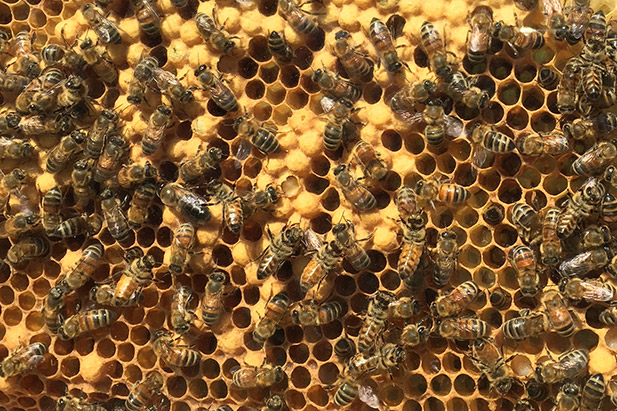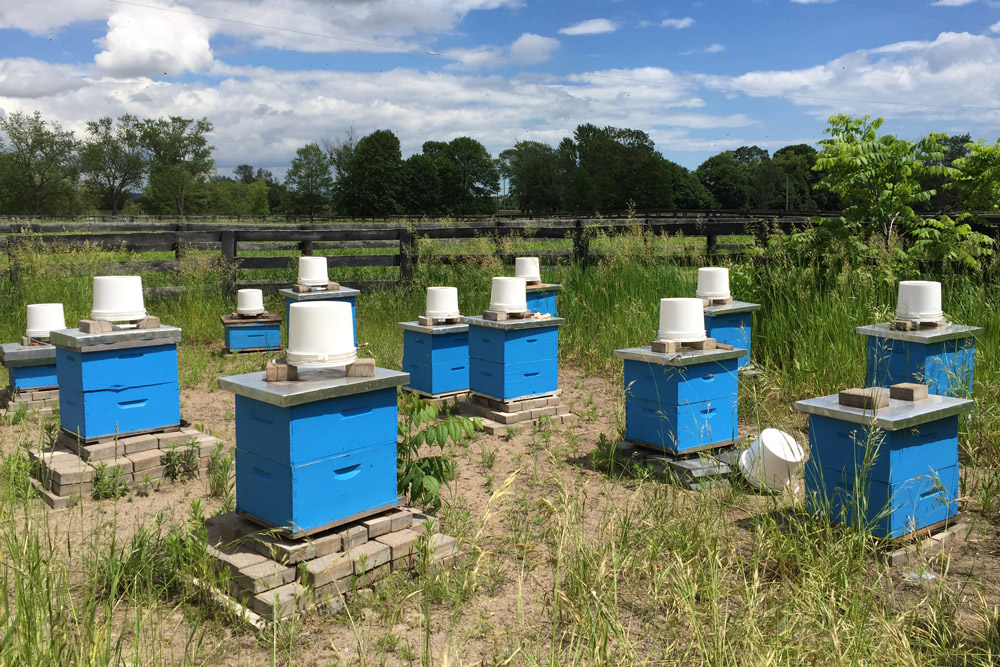Campus buzz: A hive of sustainability action at university’s Windfields Farm
July 13, 2017

They are key contributors to ecosystems. Their pollination activity is responsible for helping grow much of the food we eat. But there is mounting evidence that bees in North America face some serious environmental challenges. As a society, we need to help the bee population sustain itself, both today and in the future, through a combination of historical and innovative practices.
At the University of Ontario Institute of Technology, the Office of Campus Infrastructure and Sustainability (OCIS) oversees a wide range of environmental initiatives. One of OCIS’ newest endeavours is the Pollinator Project. Through a community partnership, Royal Meadows Farms of Bowmanville, Ontario is sharing its beekeeping expertise with OCIS to maintain hives at the Windfields Farm Lands (Windfields) immediately to the south of the recently extended Britannia Avenue West and new Tribute Communities subdivision.
In 2016, OCIS discovered a swarm of bees entering a barn on the Windfields property. Following its sustainability plan, OCIS worked with local beekeepers from Royal Meadows to move the hives away from nearby development safely and properly. Bees were also found in another Windfields barn as well as the former arena building. The new finds, all honey bees, were and relocated to Windfields’ first three hive boxes.
Last year there were just two hives at Windfields, This summer OCIS expanded the operation to 17 honey-producing beehives with the help of Royal Meadows and created a two-hectare hydro-seeded pollinator garden featuring a variety of native wildflowers.
“We are excited about the Pollinator Project’s capacity to establish and maintain a pollinator-friendly environment,” says Nadia Harduar, Asset and Sustainability Planner, OCIS. “The project will help preserve a variety of essential pollinator species including not only honey bees, but also native bees, butterflies and hummingbirds.”
Near the end of the summer, OCIS will harvest honey produced at Windfields. As part of OCIS’ mandate to keep the program local, the honey will be available for purchase at the fourth-annual Campus Market on Thursday, September 21 (follow the OCIS website for details).
You can learn more about the Pollinator Project by attending the public pollinator tour during the Green Energy Doors Open event in Oshawa (Friday, September 22 to Sunday, September 24).
Related links:
- Pollinator Project backgrounder
- Learn more about OCIS’ award-winning campus sustainability portfolio
Gallery
Media contact
Bryan Oliver
Communications and Marketing
Ontario Tech University
905.721.8668 ext. 6709
bryan.oliver@uoit.ca




